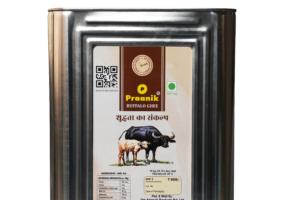Total: ₹8,340.00
The Science of Purity: How Pure Products Enhance Physical and Mental Well-being in Jainism
Jainism, one of the oldest religions in the world, emphasizes non-violence, truth, and purity. For Jains, the concept of purity extends beyond spiritual practices and rituals; it permeates every aspect of daily life, especially diet. The foods and products consumed are not just a matter of taste or nutrition but are deeply connected to spiritual well-being. Pure products, such as ghee, oils, chai, and saffron, play a crucial role in this holistic approach to health and spirituality. This blog explores how these pure products enhance both physical and mental well-being, aligning with Jain principles.
The Essence of Purity in Jainism
In Jainism, purity is not merely a physical state but a mental and spiritual one as well. The principle of Ahimsa (non-violence) is central to Jainism, influencing dietary choices and the selection of products used in daily life. Jains believe that consuming pure, saatvik (wholesome and clean) foods fosters a calm and peaceful mind, which is essential for spiritual progress. This belief is rooted in the idea that food carries with it the vibrations and energy of its source and preparation. Therefore, products that are free from violence, cruelty, and artificial additives are preferred, as they are considered pure and conducive to spiritual growth.
Ghee: The Golden Elixir of Health
Ghee, or clarified butter, is a staple in Jain households, revered for its purity and healing properties. Traditionally, ghee is made from the milk of cows that are treated with love and care, aligning with the principle of Ahimsa.
From a scientific perspective, ghee is rich in healthy fats, including omega-3 and omega-9 fatty acids, which are essential for brain health and cognitive function. It also contains butyrate, a short-chain fatty acid that supports gut health by nourishing the cells of the colon, reducing inflammation, and improving digestion. These physical benefits of ghee, such as enhanced digestion and mental clarity, complement the spiritual goal of maintaining a pure and balanced state of mind.
Moreover, ghee is often used in Jain rituals and offerings, symbolizing purity and devotion. The act of offering ghee in rituals is seen as a way of purifying the mind and body, preparing the individual for meditation and spiritual practices.
Oils: The Foundation of a Saatvik Diet
Oils, particularly those that are cold-pressed and unrefined, are another cornerstone of a Jain diet. Groundnut oil, coconut oil, and sesame oil are commonly used in Jain cooking, as they are free from harmful chemicals and preservatives. These oils are not only pure but also highly nutritious, providing essential fatty acids and antioxidants that support overall health.
Cold-pressed oils retain their natural flavor, aroma, and nutritional value, making them ideal for a saatvik diet. They are believed to promote Satva, the quality of balance, harmony, and purity in the mind and body. This is in contrast to processed oils, which are often associated with Tamas (inertia and darkness) due to their heavy processing and the presence of harmful additives.
The use of pure oils in cooking is also a reflection of the Jain principle of Aparigraha (non-possessiveness). By choosing natural, unadulterated products, Jains practice restraint and simplicity, focusing on the essentials that nourish both the body and the soul.
Chai: A Ritual of Calmness and Clarity
Chai, a spiced tea, is more than just a beverage in Jain culture; it is a ritual that brings people together and fosters a sense of community and well-being. When made with pure ingredients such as saffron, ginger, cardamom, and organic tea leaves, chai becomes a soothing elixir that calms the mind and rejuvenates the body.
Saffron, often added to chai, is known for its mood-enhancing properties. Scientifically, saffron has been shown to increase levels of serotonin, the “feel-good” neurotransmitter, which helps reduce anxiety and depression. This aligns with the Jain belief that pure, natural foods contribute to a peaceful and content state of mind, which is essential for spiritual practices like meditation and reflection.
The act of preparing and drinking chai can also be seen as a form of mindfulness, a practice that is highly valued in Jainism. By focusing on the process of brewing chai, from boiling the water to adding the spices, one cultivates a sense of presence and awareness, which are key aspects of mental purity.
Saffron: The King of Spices and Its Spiritual Significance
Saffron, often referred to as the “King of Spices,” holds a special place in Jainism due to its purity and spiritual significance. It is believed to enhance spiritual vibrations and is often used in rituals and offerings. The vibrant color and rich aroma of saffron are symbolic of the inner light and clarity that Jains strive to achieve through their spiritual practices.
From a health perspective, saffron is packed with antioxidants that protect the body from oxidative stress and inflammation. It also has anti-cancer properties and can improve heart health by reducing blood pressure and cholesterol levels. These physical benefits complement the spiritual purity that saffron represents, making it a cherished ingredient in a Jain diet.
Conclusion
In Jainism, the concept of purity is deeply intertwined with physical and mental well-being. Pure products like ghee, oils, chai, and saffron are not just ingredients but are considered essential for maintaining a balanced and harmonious life. By choosing pure, saatvik foods, Jains honor the principles of Ahimsa, Aparigraha, and Satva, nurturing both the body and the soul. As modern science continues to validate the health benefits of these pure products, the timeless wisdom of Jainism remains a guiding light for those seeking a life of purity, peace, and spiritual fulfillment.


